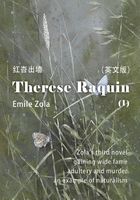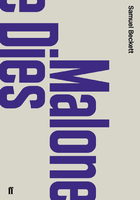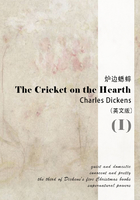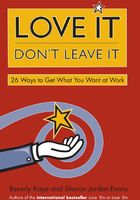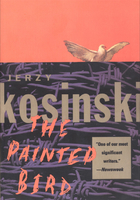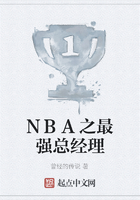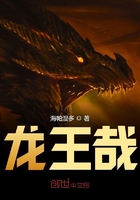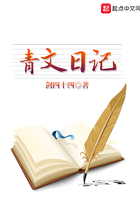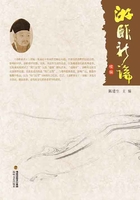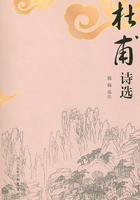THEY DON'T, IN FACT, NEED HELP: Engine Room Guy just goes, "Do I know you?" and Max shrugs apologetically.
Now that I've got the idea stuck in my head, I refuse to let it go. There's nothing I can do about Iris until lockdown ends. I might as well try to secure us a spot in the meantime. I stalk the corridors, and with every person I see, I introduce myself and ask if they need help. I smile, keep my hands still, and make eye contact for a half second at a time. I feel nothing like myself and, at the same time, so accomplished that my smile isn't even fake.
Once, I trail after a floating transport to help stabilize it. Another time, someone drags me into a production plant filled with crisscrossing tubes and big metal containers making noises that grate like a knife dragged against a dinner plate. They put a mop in my hand and point at a spill on the floor, something sticky that glows blue in a certain light.
Two hours later, when the sweat on my back has long dried but my head is still throbbing, a girl in the hallway stops me. She's got thick blond hair and hard, narrow eyes. "Denise?"
"Yes?"
"You're helping out. Right?"
"Yes?"
She narrows her eyes further, as though sizing me up. She's not much taller than I am, but she milks that centimeter or two for all they're worth. "I'm Mirjam," she says finally. "My brother, Max, mentioned you. I've got something you can help with."
I trail after her. I hadn't picked up on the resemblance, but it's obvious now. They've got similar broad shoulders, similar hair—though hers doesn't have the red sheen his does—and similar pale, blotchy skin.
"You play soccer?" Mirjam asks. When I don't answer straightaway, she turns, walking backward through the hall. "A friend and I are setting up a women's team once we've launched. We'll call it the Astronauts or whatever. You play?"
"No, I don't."
Air escapes through her teeth. Disappointment, I think—I hope. The other option is annoyance. "You want to try?"
No, I almost say—I'd only embarrass myself—but the odds are, I won't be on board then, anyway. "Sounds fun."
"Sweet."
Mirjam guides us into a kitchen, where she weaves between people rushing to prepare dinner and points me to an industrialsized dishwasher and empty cart. "Unload, stack the clean plates on that cart, stack the glasses, too, no more than four high, and dump the silverware in those bins. Forks, spoons, knives." She points at each bin. "Wash your hands first. Got it?"
"Got it," I say, relieved to not have to work with food. The kitchen smells good—even if there are so many smells I'm already distracted placing them all—but my culinary skills begin and end at making sandwiches.
Mirjam moves away, and for a moment I wonder whether she simply assigned me her job and is now hightailing it out of here, but instead she hauls open another dishwasher nearby and starts plucking out plates, three or four at a time.
"My father and I normally do this together," she says, piling the plates noisily on a cart beside the dishwasher, "but he got enlisted to help check for damage from the impact."
I gingerly remove the plates. I hate that noise when they hit and scrape against each other. The bustle of the kitchen behind me is loud enough as is. I don't want to break anything, besides.
"Sorry, you mind if I talk? I'm a talker."
"What? No."
"Good." Her stack of plates is already twice as high as mine. "How'd you get on board so late? I thought selection was over and done with."
"Ah …" A smaller plate got mixed in with the large ones I'm working on. I'm tempted to put it back into the dishwasher by the other plates that size, but that's—that's probably weird, I think, and Mirjam is looking, so I just set it aside for a stack of its own. "We were selected early on. We couldn't make it on board sooner."
I have no idea if that lie will hold water, but Mirjam is nodding. "Gotcha. I was happy to move on board, myself. Someone broke into our house the other month—looking for food, I guess—and it didn't feel safe after that. Plus, it was cold. We had to board up the window they broke, and couldn't find anyone to fix it properly."
"That sucks," I say—usually a safe response.
"Tell me about it."
I have a nice stack of plates now. I put my hands on each side of it, straightening the stack before reaching for the first batch of small plates. There's a sense of relief when I add them to the single plate I set aside. "Max said his computer skills got your family on board."
"He likes to brag about that."
"So … I'm sorry, my mother arranged this whole thing, I never got involved … How does that normally work? I know the government ships selected people based on skills and held a lottery for the rest, but this isn't a government ship, is it? Was it any different?" I haven't wanted to ask Michelle or Els because I've already embarrassed myself enough around them, and I avoided asking Max in case he would realize I'm not an official passenger. I have to ask someone, though. The more I know, the better I can plan.
"It came down to the same thing. Skills and luck. My father tried to get us in first, but they had enough teachers already." Mirjam moves on to the cutlery. She grabs fistfuls and drops them in the appropriate bins, barely even needing to look. "Why won't your mother tell you about it?"
"Um … she just wants to put it all behind her."
"Well, I know that feeling. You want the long story?" At my hopeful nod, she tosses her hair over her shoulder. "Captain Van Zand—just Driss van Zand back then—owned half a dozen factories and refineries, including a ton of land with goods warehoused for later processing. He had stacks of money, too, but that didn't do anyone that much good, huh?"
The government had tried to stabilize the economy, but euros wouldn't keep anyone fed after the comet hit. All of a sudden, canned food went further than credit cards.
"The government needed Van Zand's resources to get the permanent shelters set up; he gave them full access in return for a smallish ship they'd written off as unusable. He got it fixed up—mostly—and let on board anyone who helped with repairs or donated supplies. Repairs went slower than he expected, though, which is why the Nassau is still here when all the other ships have already left. We're supposed to take off in two days, I think?"
"Thursday," I confirm, glad to have something of value to add. Two days doesn't leave me with much time to find Iris, bring her back, and get us all spots on board, but right now I should focus on Mirjam's explanation.
"We almost managed to launch before impact, but … we didn't make it. And now the repairs are on hold because of the impact and debris."
The sight of the debris had stopped me dead in my tracks, but Mirjam sounds so matter-of-fact, she might as well be talking about that soccer team she wants to set up.
"So, Van Zand had the ship, basic supplies, and some staff and passengers, but he still needed specific jobs filled. Teachers, cooks, farmers, doctors, biogeneticists, craftspeople, chemists, astrophysicists, yada yada. He spread the word in the right circles, but kept the ship's location hush-hush. I think he didn't even tell people there was a ship, just hinted at a way out. So people found out about the opportunity on the down low, applied, and Van Zand and a team he put together judged—"
"Michelle?" I watch someone go past, pushing a cart with a giant steaming pot of soup.
"Who? I dunno." Mirjam is stacking glasses now. The clink-clink-clink almost drowns out her voice. "They judged the applicants' skills, age, health, number of dependents, all that, and made selections. Those people got picked up and brought to the ship in groups. Some of them tried to bring friends along, I think, and got their acceptance revoked. Poof! Dumped by the side of the road with a bunch of suitcases."
"Harsh."
"Um, necessary," Mirjam says. "You saw the riots when the government ships were boarding people, right? We could tell close relatives we had a spot on a ship, just to put their minds at ease, but without any details. And definitely not the location."
"I just mean …" I chew my lip. "I have a sister." And a mother. And me.
Mirjam's harshness fades. "Ah, shit. Too old to come on as a dependent? I know Van Zand made exceptions and let some people bypass the rules. There's also a waiting list for applicants who didn't quite make it, and for the families and friends of those who did. Is she on there? What does your mother do? If she's important, your sister stands a better chance."
I give her the same spiel I gave to Michelle. "And I work at an animal shelter. Worked. I'm good with cats, but that's not exactly useful."
"Heh." Mirjam clangs her dishwasher shut and comes over to help with mine. I steel myself, but she doesn't say a word about my slowness. "I like cats. I always planned that, once I got my own apartment, I'd visit the animal shelter first thing. Not for a cute kitten, but for a cat people don't adopt as often, you know? A black one or—"
"Actually, it's the disabled ones that are hard to place," I correct her, though I know I should really focus on the waiting list. "People don't see them as worth the trouble when there are healthy cats to take. It's especially difficult for cats with both physical and behavioral issues."
"I guess that makes sense." Mirjam walks around me with handfuls of silverware. "Maybe I'd have taken one. Hadn't crossed my mind before."
"Someone at the shelter would've told you."
"Yeah." Mirjam tosses the knives in one bin and sighs. "I'm sure they would have."

